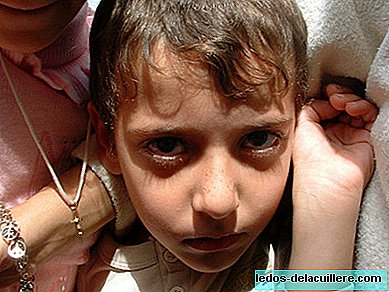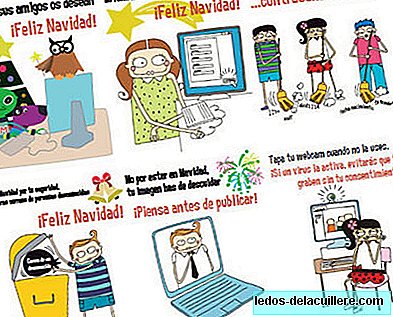
Unfortunately, more and more families are suffering from effects of the economic crisis which is acquiring marked nuances of social inequality. If families with children are groups especially vulnerable to this situation it is because in some cases adequate attention to children is in danger. And also because obviously the cuts in health, education and other services, as well as increases in indirect taxes (not to mention another series of measures that can affect negatively), will have consequences that are still difficult to assess, causing them to suffer Small family economies.
It is not so interesting now to talk about statistics, as well as the direct consequences on the quality of life of boys and girls. It is clear that we can all stop using expendable goods and services, and that it is possible to lead a more 'simple' lifestyle without having to feel unhappy.
However, we should be concerned to know that the crisis limits the ability to develop physically, psychologically and socially for children. Sadly there have always been poor children, but now the number of families with limited resources to meet the needs of the little ones has increased. We talked to you a few weeks ago that according to a UNICEF report, children are currently the poorest group. And it seems that the worst is yet to come because it shows in general a lack of concern for the problems generated by the crisis in children. If families are not taken care of, the message we receive is that 'children are not among the priorities' of our nation.
With what concrete problems are families affected by the crisis?
Food of lower quality, it is obvious that having less budget you can not buy fresh products.
Lack of resources to deal with the acquisition of textbooks, since regional aid is already being withdrawn for this purpose. Inequality in the access to school canteen services, since in the same way needing the service, next year many families will not have scholarships and will have to face the payment with a precarious economy (as has been happening).
Lower school performance: it is not necessary to be an expert to realize that if cuts in education are added to the unavailability of parents to help children at home (because they must work longer hours, because they suffer from mental health disorders, or for any other reason linked to job instability) ... it is clear that academic results will be very likely affected. But it also depends on the future of today's children, what will they find in 15 or 20 years?
Child neglect: the uncertainty caused by situations such as' long-term 'unemployment, or the dedication of many hours to look for a job, generate' extra 'concerns that keep parents' heads very busy, and this is detrimental to the family relationship .
Emergence of addictive behaviors (especially alcohol abuse) and increased frequency of mental disorders, among parents who are 'drowned' by debts, and also have no possibility of adequately covering the primary needs of children.
Poor quality care in some health centers due to the cuts that are not talked about so much (now we are with the pharmaceutical copayment and football), but they continue.
Not to mention that many families can no longer enjoy leisure as we understand it today: paying for movie tickets, going out to dinner and (of course) spending a few days on vacation, they are an inaccessible luxury for many
Situations like the ones I have described can be found in the newspaper, I at least, and I can also see the low sensitivity of society and institutions to the healthy development of childhood, I will save the examples for short, but surely you too you will have noticed.
In a society that bets on the future, human capital should be taken care of with great care, especially in the case of children. People have very valuable resources, and communities can help us develop them, therefore beyond the institutionalization of the answers to problems, it may be time to activate the social networks that allow us to help each other. It is certainly not easy, and I understand that many families find it almost impossible, but among all we should find a way to regain hope.












